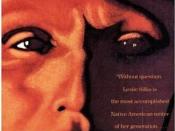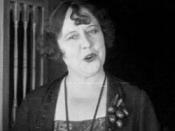The Significance of Myth in Ceremony
Many people in our culture misunderstand the function of myth. We typically assume that there are two kinds of narrative, completely distinct from one another: a journalistic compilation of facts, all literally true and verifiable, or stories spun by a fiction writer for the purpose of entertainment only. Myth, we assume, falls resoundingly into the latter group. While primitive and superstitious people may have once believed that the sun was pulled across the sky by a chariot, we in our infinite scientific wisdom know that is not the reason that the sun appears to move in the sky when viewed from earth. Therefore, the myth is written off purely as a work of fiction and fantasy.
Indigenous peoples throughout the world, however, look at their myths and folktales in quite another way. They recognize in them an explanation, not for the way physical science works or history occurred, but for the way their culture feels about itself.
Myths explain by analogy concepts that it would be difficult, if not impossible, to explain literally. They do so in a way that bypasses the conscious, analytical mind and heads straight for the heart (technically, the unconscious). The stories are thus both emotionally and psychologically satisfying, and can have a very therapeutic effect when an individual's spirit is sick. When he feels, in other words, out of sync with the group that gives him his ultimate identity.
This is the situation in Leslie Marmon Silko's novel Ceremony. The protagonist, Tayo, has suffered what we would consider a nervous breakdown as a result of traumas suffered in the war. The trauma actually occurred because he was ordered to shoot enemy soldiers, who seemed to him to bear the faces of his ancestors. He is first sent to...



Ceremony
Wow!!!!! Thank you soo much this has helped me a crud load!!!!! You're the best!
0 out of 0 people found this comment useful.